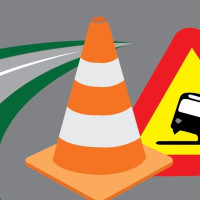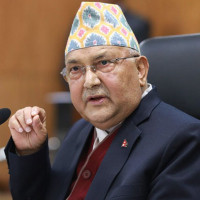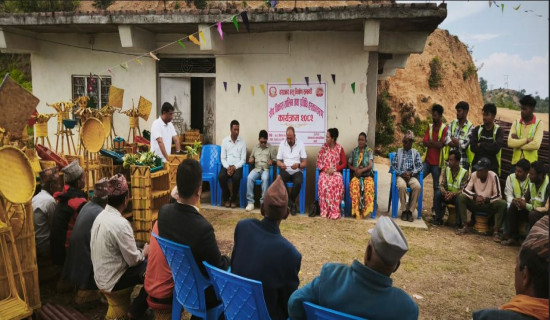- Sunday, 29 June 2025
Improved SEE Results
The results of the Secondary Education Examination (SEE) for the academic year 2024/25 have improved significantly compared to that of last year. While only 47.86 per cent of students passed the SEE in the previous academic year, the pass rate this year has climbed to 61.81 per cent, an increase of 13.95 per cent points. Perhaps last year's pathetically poor results galvanised the government authorities to take decisive measures to dramatically improve the results. Experts have credited this achievement to better preparation, increased access to learning resources, and more effective teaching strategies across schools.
The improvement is also attributed to the combined initiatives of the federal and local governments. That said, here's a catch: although the results are better than last year, they fall short of being fully satisfactory. While formulating plans and policies for the upcoming academic year, the government should be driven by the goal of ramping up this pass per cent significantly. As always, the government schools continue to fare poorly compared with their private peers.
The gap in the quality of teaching in private and government schools needs to be plugged. While the former have become sought-after schools even for low-income families who can ill afford to send their children to such schools, primarily two problems continue to hold the latter back: a lack of quality teachers and an adequate number of teachers in relatively tough subjects like maths and science. Without addressing these issues, efforts at improving SEE results cannot go far enough.
The largest number of students have failed in mathematics, followed by English, Science and Technology, Nepali, Social Studies, Economics and Optional Mathematics. To give these students a second chance to retake the exams, supplementary exams have been scheduled for August 14. Teachers and parents need to make tireless efforts to make them realise how the opportunity is too great to miss, which can be the decisive factor in pushing them to give their best through hard work.
The thing of overriding importance for every aspirant, however, is not to quit after having suffered a setback in the first attempt. Nor is the test the be-all and end-all of our life. On the contrary, this is only the first step along the long journey. Life rewards more generously those who, instead of quitting, persevere in the face of obstacles, regardless of how daunting they may initially seem. Countless examples corroborate this fact. In life, the sweetest success is tasted by those who develop a lifelong passion for a particular field. Education should help pupils nurture this passion, one that endures long after exams are taken.
Every child is born with unique talents. All guardians, teachers and stakeholders should encourage students to pursue a career of their own choice, one that immensely interests them. There's a universal agreement that a few-hour exam fails to correctly assess the knowledge and talents of a student. To address this issue, experts have long called for a Continuous Assessment System (CAS), which regularly monitors and evaluates pupils throughout the course. Parents should accept the fact that their wards, like everyone else, have both weaknesses and strengths, and they should stop comparing their children with others who have passed the exams with flying colours. What it takes to overcome these weaknesses is diligent efforts.

















